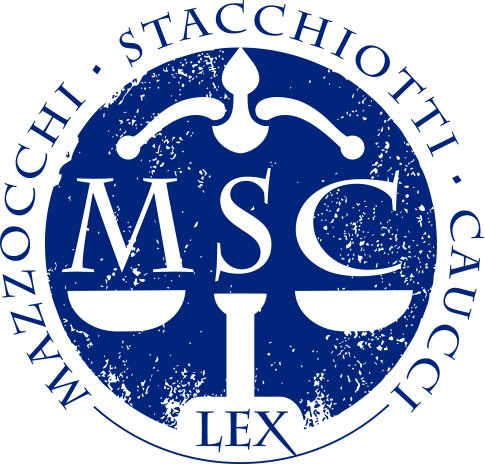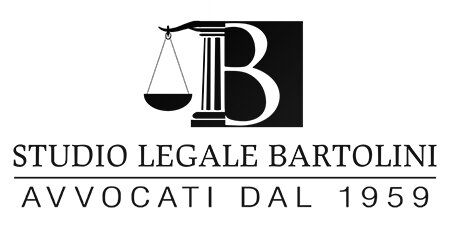Best Whistleblower & Qui Tam Lawyers in Ancona
Share your needs with us, get contacted by law firms.
Free. Takes 2 min.
List of the best lawyers in Ancona, Italy
About Whistleblower & Qui Tam Law in Ancona, Italy
Whistleblower and Qui Tam laws in Italy are designed to protect individuals who report illegal or unethical activities within organizations. In Ancona, these laws are part of a broader national effort to encourage transparency and accountability in both public and private sectors. Under Italian law, whistleblowers are provided with certain protections against retaliation and may be eligible for a reward if their information leads to successful enforcement actions.
Why You May Need a Lawyer
There are several situations where individuals in Ancona may require legal assistance related to whistleblowing and Qui Tam actions. These include:
- Experiencing retaliation after reporting misconduct at work.
- Uncertainty about the correct legal procedures for reporting unethical activities.
- Gathering evidence and documentation to support a whistleblower claim.
- Understanding eligibility for potential financial rewards under Qui Tam provisions.
- Navigating complex legal processes and ensuring compliance with Italian laws.
Local Laws Overview
Key aspects of local laws regarding whistleblowing and Qui Tam in Ancona include:
- Whistleblower Protection: Italian law protects individuals who report unlawful activities within their organization, safeguarding them from dismissal, demotion, or other forms of retaliation.
- Reporting Mechanisms: Whistleblowers can report misconduct to various authorities, including regulatory bodies and law enforcement, depending on the nature of the wrongdoing.
- Confidentiality: Whistleblower identities are kept confidential to the greatest extent possible to protect them from retaliation.
- Rewards: In certain cases, whistleblowers who provide information leading to successful legal actions may be entitled to a percentage of the financial recoveries.
- Legal Procedures: The process for filing a whistleblowing claim can be complex, involving multiple steps and strict adherence to procedural rules.
Frequently Asked Questions
What is a whistleblower?
A whistleblower is someone who exposes information or activities considered illegal, unethical, or not correct within an organization.
What is a Qui Tam action?
A Qui Tam action is a legal provision that allows individuals to file a lawsuit on behalf of the government against a person or company committing fraud against the government.
What protections are available for whistleblowers in Italy?
Italian law offers protection against retaliatory actions such as dismissal or discrimination for employees who report illegal activities.
How can a whistleblower report misconduct?
Whistleblowers can report misconduct internally to their organization, or externally to law enforcement or regulatory authorities, depending on the situation.
Are whistleblower identities kept confidential?
Yes, to the extent possible, authorities strive to keep the identities of whistleblowers confidential to protect them from retaliation.
Is there a reward for successful whistleblower claims?
In some cases, particularly under Qui Tam provisions, whistleblowers may be eligible for a financial reward if their information leads to successful legal action.
Can any employee be a whistleblower?
Yes, any employee or individual with knowledge of illegal activities can be a whistleblower, although certain legal criteria must be met to qualify for protections and rewards.
What are the risks of being a whistleblower?
Risks can include potential retaliation, harm to professional relationships, and the stress of legal procedures, though laws are in place to mitigate these risks.
How can I find the right lawyer for a whistleblower case?
Look for lawyers with experience in whistleblower and employment law, and consider seeking referrals from legal aid organizations or local bar associations.
What should I do if I face retaliation for whistleblowing?
Contact a lawyer immediately to understand your rights and explore legal options for protecting yourself and addressing the retaliation.
Additional Resources
For more information and support, individuals in Ancona can reach out to:
- Local Bar Associations: They can provide referrals to qualified lawyers specializing in whistleblower cases.
- Regulatory Authorities: Organizations such as the Italian Anti-Corruption Authority can offer guidance and support for reporting misconduct.
- Non-Governmental Organizations: Some NGOs specialize in providing support and resources for whistleblowers.
- Legal Aid Clinics: These clinics may offer free or low-cost legal advice and representation for whistleblowers.
Next Steps
If you believe you have witnessed wrongdoing and are considering taking action, it is crucial to:
- Document all relevant information and evidence regarding the suspected misconduct.
- Consult with a lawyer to understand the legal protections available and the best course of action.
- Familiarize yourself with the reporting mechanisms and procedures applicable to your case.
- Consider the potential risks and rewards of whistleblowing, ensuring you are fully informed.
- Act promptly to meet any legal deadlines for filing claims or reports.
Lawzana helps you find the best lawyers and law firms in Ancona through a curated and pre-screened list of qualified legal professionals. Our platform offers rankings and detailed profiles of attorneys and law firms, allowing you to compare based on practice areas, including Whistleblower & Qui Tam, experience, and client feedback.
Each profile includes a description of the firm's areas of practice, client reviews, team members and partners, year of establishment, spoken languages, office locations, contact information, social media presence, and any published articles or resources. Most firms on our platform speak English and are experienced in both local and international legal matters.
Get a quote from top-rated law firms in Ancona, Italy — quickly, securely, and without unnecessary hassle.
Disclaimer:
The information provided on this page is for general informational purposes only and does not constitute legal advice. While we strive to ensure the accuracy and relevance of the content, legal information may change over time, and interpretations of the law can vary. You should always consult with a qualified legal professional for advice specific to your situation.
We disclaim all liability for actions taken or not taken based on the content of this page. If you believe any information is incorrect or outdated, please contact us, and we will review and update it where appropriate.









